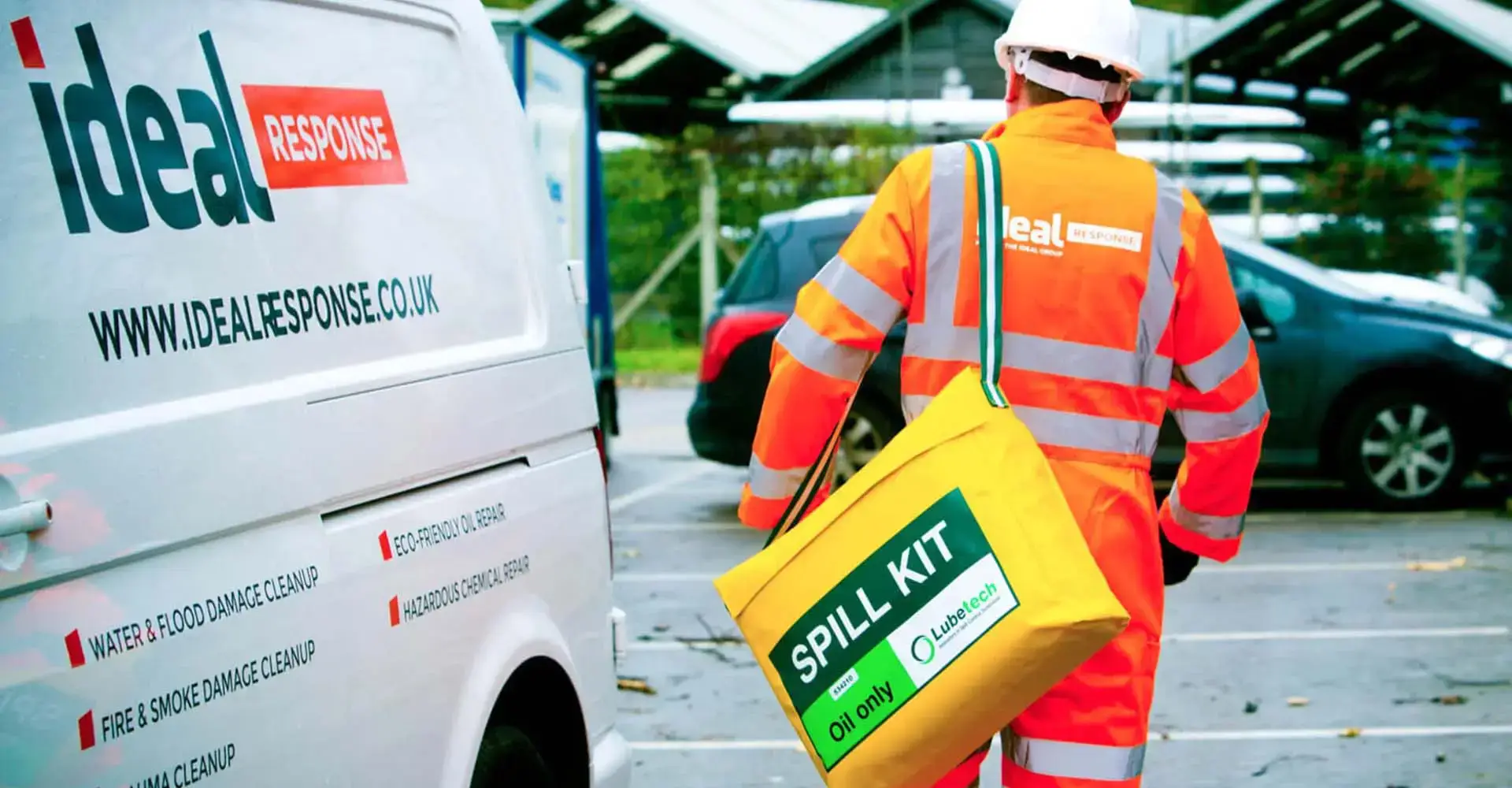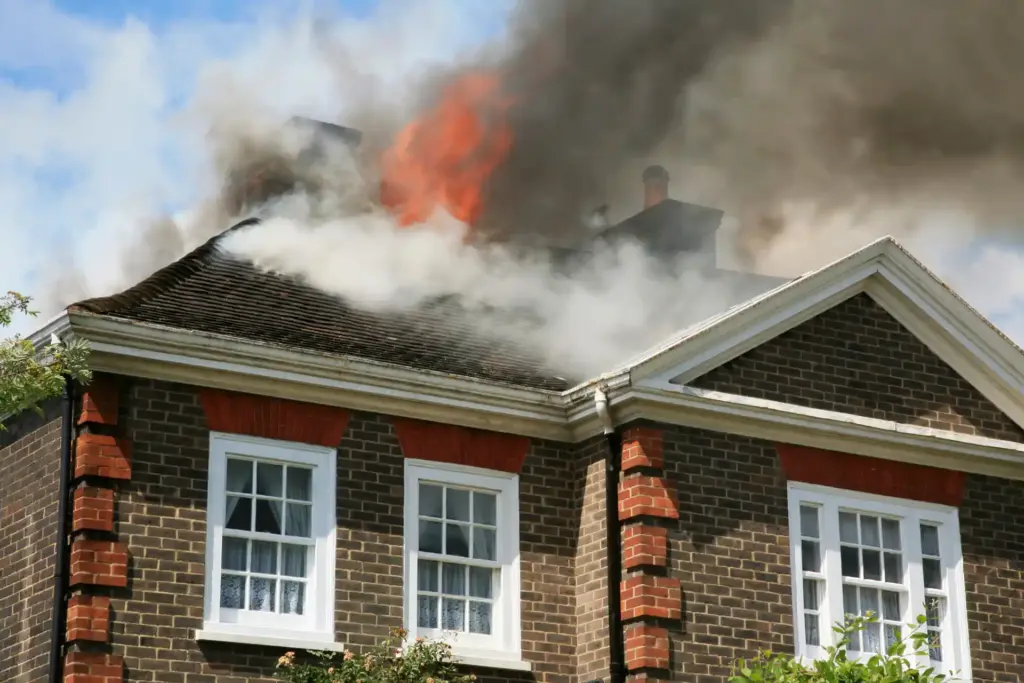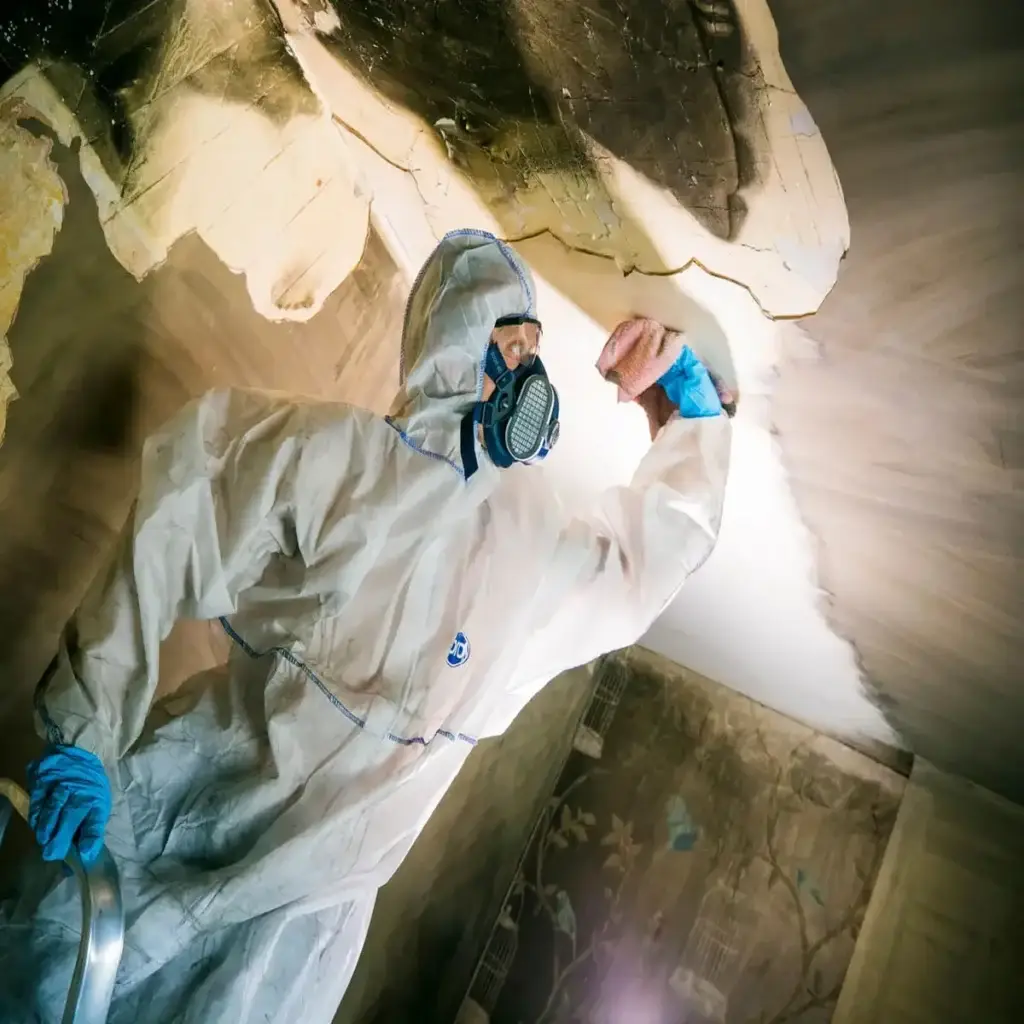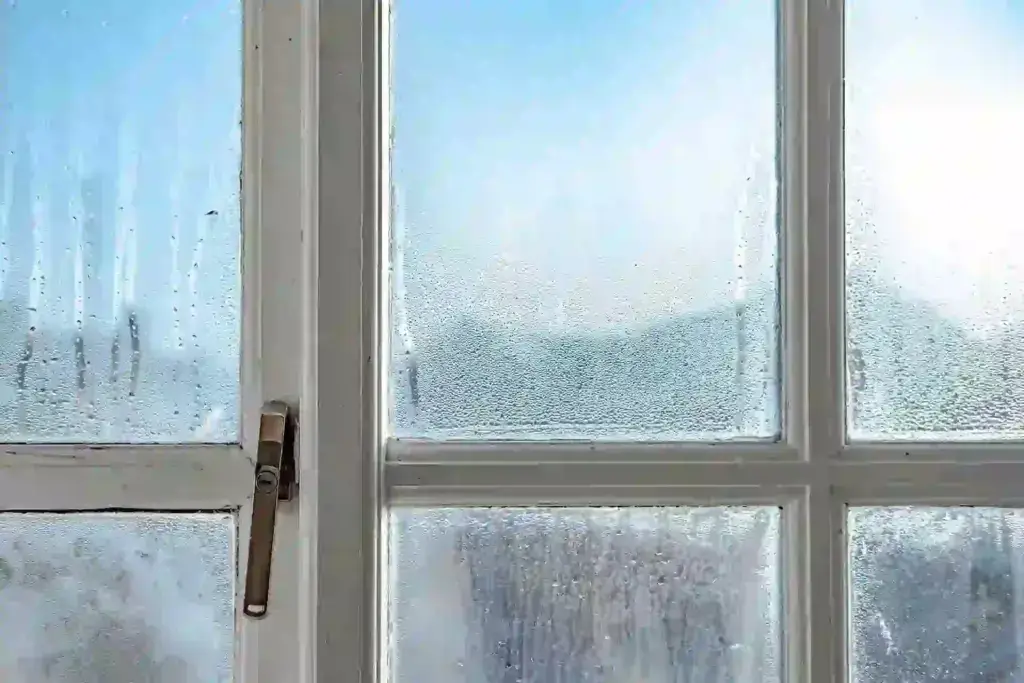The moment a liquid fuel spill is detected on your site, the immediate danger is not just financial; it is environmental and legal. An oil spill is a serious pollution incident that can lead to contaminated land or watercourses, crippling remediation costs, and unlimited fines from UK regulators. In an emergency, choosing the right UK oil spill cleanup service fast is the single most important decision. You need a company that is accredited, experienced, and legally compliant to protect your assets and business interests. This 5-point checklist cuts through the panic, giving you the essential steps to vet any emergency contractor and ensure your site is professionally restored.
Skip to:
Accreditation and 24/7 availability
Insurance and legal compliance
1. The critical first 30 minutes: Stop the spread and call
When you discover an oil spill, the clock is ticking. Your first priority is containment and contact. Trying to perform a substantial cleanup yourself with detergents or a hose will make the contamination far worse, leading to massive fines and extensive environmental damage. Do not attempt to clean up or treat the spill yourself. Visit our UK oil spill guide for a more in-depth breakdown.
What you must do immediately (containment only)
- Stop the source: If safe and possible to do so without risk, your primary action is to stop the flow of the oil by closing valves, uprighting containers, or sealing the leak point.
- Containment: Use a spill kit, dry sand, or soil to create a barrier and prevent the oil from reaching drains or watercourses. Never use water or detergent, as this spreads the pollution.
- Call the regulator: Immediately report the incident to the appropriate UK environmental regulator (e.g., the Environment Agency on their 24-hour hotline).
- Call a specialist: Contact an accredited emergency oil spill cleanup service UK provider for rapid, 24/7 response.
2. Accreditation and 24/7 availability
In an emergency, you cannot waste time on unqualified contractors. A reputable UK emergency oil spill service must meet stringent industry and legal standards. These include, but are not limited to:
- 24/7 rapid response: Confirm their guaranteed response time. A good service should be able to mobilise and have staff on-site within hours to begin containment. A great example of this is highlighted in our ‘Major oil spill cleanup in London for Netflix production‘ case study.
- Accreditation is non-negotiable: Check for accreditations from industry bodies like the UK Spill Association (UKSpill). This verifies their competency, training, and adherence to national standards for containment and remediation.
- Hazardous waste licence: The clean-up involves removing heavily contaminated soil, water, and absorbent materials. The service must possess the necessary licensing to legally transport and dispose of this hazardous waste, providing you with a Waste Transfer Note as proof of compliance.
3. Insurance and legal compliance
Oil spill remediation is expensive. Costs can exceed £20,000 for serious domestic spills and much more for commercial incidents. Understanding your insurance position and legal risk is crucial.
The unlimited fine risk
Failure to report a spill or clean it up properly is a criminal offence under the Environmental Permitting (England and Wales) Regulations 2016 and the Environmental Protection Act 1990. Recent changes in UK law have scrapped the cap on civil penalties, meaning the Environment Agency can impose unlimited fines on polluters, whether they are businesses or homeowners.
Liaising with your insurers
You are legally considered the ‘polluter’ and therefore responsible for the remediation costs. Your service provider must be equipped to handle this complexity by:
- Providing comprehensive, clear reports and photographic evidence that satisfy insurance loss adjusters.
- Clearly differentiating the costs of emergency containment from the longer-term remediation costs.
- Confirming they have experience working with major UK home and commercial insurers to handle complex claims seamlessly.

4. Understanding the cleanup process: Remediation techniques
Effective cleanup requires a multi-stage approach beyond just wiping up the surface oil. You are choosing an environmental remediation expert, not a cleaner.
- Containment & recovery: This is the immediate physical removal of free-floating oil using booms, skimmers, and specialised vacuum tankers.
- Soil and groundwater sampling: Detailed sampling is required to determine the full extent of the contamination, often under the surface and invisible to the naked eye. This dictates the entire strategy.
Remediation options explained
- Excavation (Dig & dump): This involves physically digging out and removing the contaminated soil, which is then transported off-site to a licensed hazardous waste facility. While quick, it is highly disruptive, involves heavy machinery, and generates significant waste and transport costs. A brilliant example of this is highlighted in the Oil spill clean-up for high-net-worth property in West Sussex case study.
- Bioremediation: This is a more subtle, long-term approach. It involves treating the affected ground in situ or ex-situ by introducing specialised microorganisms (or stimulating native ones) to break down the oil hydrocarbons into harmless compounds like carbon dioxide and water. While less disruptive and often cheaper, the process relies on natural biological cycles and can take several months to reach the necessary environmental standards.
5. Post-clean commitment
The job is not complete until the affected area is certified safe by environmental standards.
- A top-level service will provide a Validation Report confirming that the land or water has been restored to an acceptable environmental condition, suitable for re-occupancy or normal use.
- Insist on clear documentation of the remediation methods used and the final, successful environmental outcome. This report is essential for insurance claims and any potential future property sale.
Preventing the next emergency: Tank maintenance
Many oil spills are preventable, especially those caused by faulty heating oil tanks. You can minimise your risk by hiring an OFTEC-registered technician for annual inspections. Common failure points include:
- Rust and corrosion: Particularly on older steel tanks or where the base of the tank has been allowed to sit directly on the ground.
- Faulty pipework: The oil line connecting the tank to the boiler is a frequent source of slow, undetected leaks, especially if it runs underground.
- Damaged gauge/sight glass: These parts are prone to breaking or freezing, leading to slow leaks or accidental overfilling during a delivery.
What next
If you’ve discovered an oil spill, whether it’s at your home or your business, you’re dealing with much more than just a simple leak. This is a serious environmental emergency that carries the risk of unlimited fines and massive cleanup bills that can run into the tens of thousands. In this crisis moment, the worst mistake you can make is to delay action or attempt to clean it up yourself. That’s why we’ve created this simple 5-point checklist. Use it to instantly vet an accredited UK Spill Association expert, ensuring you get a rapid, legally compliant response. Don’t wait. Acting immediately is the single most important step you can take to limit contamination and protect your property’s future.
Don’t just contain it. Get full legal compliance & remediation
A serious spill requires more than just a quick clean-up; it demands specialist legal and environmental handling. Avoid the risk of unlimited fines and future liabilities with a proven solution. Our 24/7 UK-accredited team is ready right now to provide rapid containment, complete end-to-end remediation, and handle all necessary regulatory reporting.
Need help now? Call us on 01622 926 505
FAQs for oil spill liability and cleanup
Who is legally responsible for paying for the oil spill cleanup and remediation?
In the UK, the liability usually falls on the owner or occupier of the land where the oil originated, regardless of who caused the leak. This is why having adequate property insurance with specific environmental cleanup coverage is critical.
Am I legally required to report a domestic or commercial oil spill to the Environment Agency?
Yes. If the spill enters or is likely to enter a drain, watercourse, or groundwater, you have a legal obligation to report it immediately to the appropriate regulator (e.g. the Environment Agency). Failure to report can result in prosecution and substantial fines.
Can I clean up a small oil leak myself, and is it okay to use detergent or a hose?
You should only perform immediate containment (using dry sand or a spill kit) and stop the source. Never use water or detergents; water spreads the oil further, and detergents can make the contamination worse, often resulting in a larger fine. Specialist contractors are required for full remediation.
What is the UK Spill Association, and why is their accreditation important for cleanup contractors?
The UK Spill Association is the industry body that accredits professional oil spill responders. Hiring an accredited expert ensures they are trained, competent, and operate to nationally recognised best practices, which is essential for legal compliance and successful insurance claims.
How long does the full professional oil spill remediation process typically take?
The timeline varies significantly based on the severity and spread. Initial containment and assessment can take days, but full remediation, especially involving specialist techniques like bioremediation, can take anywhere from a few weeks to several months to achieve full sign-off from the regulator.
What are the key signs that an oil leak has spread underground to the groundwater or foundations?
Indicators include persistent, strong oil odours in the air, sudden drops in the oil tank level, visible oil sheens in nearby drains or water bodies, and brown or black staining on building foundations or basement walls. Immediate professional testing is required if you suspect migration.

Andy Garside - Operations Director
Andy brings over 30 years of extensive experience in disaster response and hazardous waste management. With a career deeply rooted in environmental and pollution incident response, Andy possesses thorough technical knowledge of hazardous materials and waste industry operations. Andy ensures the highest standards of safety, compliance, and environmental responsibility across a wide range of complex remediation and decontamination projects. For Andy, operational excellence means not just protecting assets, but also safeguarding public health and the environment, even in the most high-pressure situations.





















